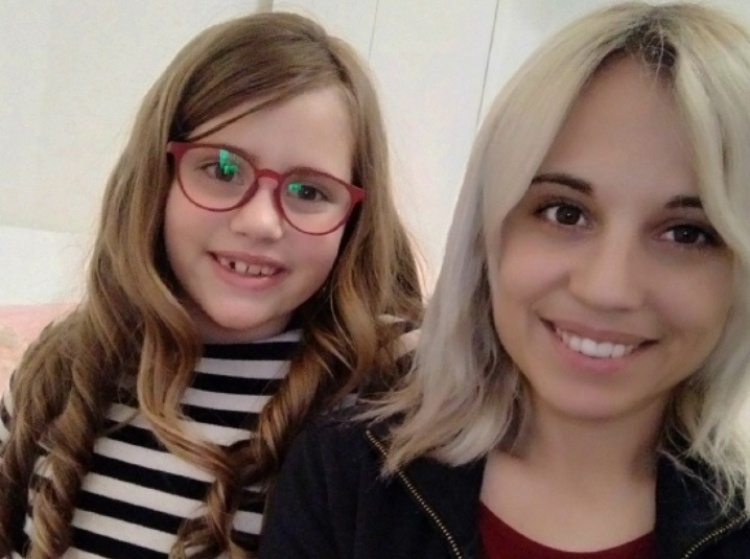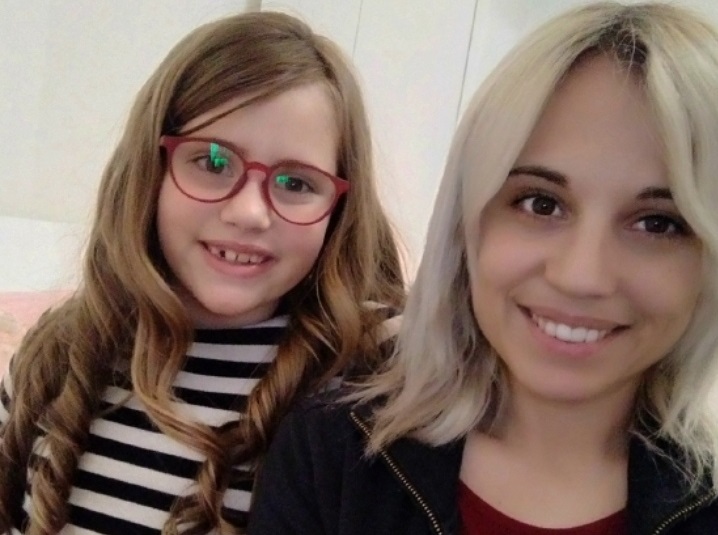Since early March, the eight-year-old student’s daily life has changed drastically.
“Before, I went to school for eight hours a day, from 8:00 am to 4:00 pm,” she says.
“We did two hours of Italian, two hours of maths, then music, PE and technology.”
She ate at the canteen (though she admits the food wasn’t anything special) and did gymnastics two times a week, part of her normal routine that she misses a great deal.
“I stay in bed a little longer in the mornings,” she says.
“I do my homework, read, go on my tablet and play with our cat.”
The school comes to Emma’s home thanks to the “Cloud”.
“It’s a portal that contains all the activities and tasks that appear on my tablet, thanks to the internet,” she explains.
“The teachers also provide audio.”
Emma’s mother, Giorgia Martini, says her daughter is handling the situation very well.
Both of Emma’s parents avoided panicking and calmly explained to their daughter that she has to stay indoors to keep others safe and healthy.
“We made her aware but not alarmed,” Giorgia says.
“We explained to her that the virus doesn’t affect children that much and that if she follows all the advice and instructions, she won’t have to worry.”
It’s important to prevent children from having access to the media and expose them to the right kind of information, like videos made by other children who explain the situation in a jovial manner.
“Every now and again, Emma gets tired of staying at home and not being able to go for a walk or move around,” Giorgia says, adding that she lives in an apartment.
Fortunately, her father Emiliano has a garden at his house where she can play.
Like Giorgia, many parents in Italy are facing the challenge of “structuring the entire day”, while not being able to give their children their undivided attention, as many adults are still working from 8:30 am to 6:00 pm.
“Fortunately, when it comes to education, the school has a good portal and once you understand what the activities are, it’s very simple,” Giorgia says.
“I’m familiar with technology, so that wasn’t a big problem for us.
“The teachers forward the activities to us on the portal and interact with the parents through the class representative.
“If more communication is required, we use WhatsApp.”
Given Emma’s age, she doesn’t have to participate in online classes, but she does listen to audio and stories related to the themes explored from the beginning of the school year.
“Our school is well organised: they have sought to maintain contact with the students in the best way possible,” Giorgia says.
“The teachers are working around the clock to make sure the children’s education isn’t disrupted.”
Both Emma and Giorgia – like all of us – hope to return to the rhythm of normal life as soon as possible.












